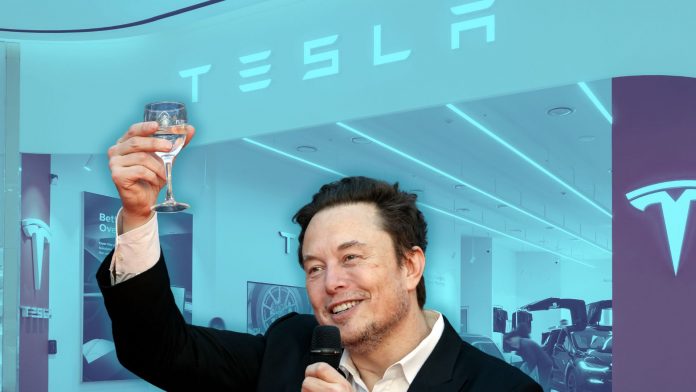On Friday, Tesla’s market cap made a historic leap, surpassing the $1 trillion mark again following Donald Trump’s victory in the 2024 Presidential elections. This significant milestone underscores the company’s rapid growth and its potential to reshape the automotive industry.
Elon Musk, Tesla’s CEO, has emerged as a key figure in the Trump campaign, contributing millions of dollars to the candidate. His alliance with the incoming Trump-Vance administration could potentially shape future auto policies and regulations, underscoring the strategic implications of this relationship.
Elon Musk’s advocacy for easing auto policies and regulations, coupled with Trump’s plan to impose heavy tariffs on foreign automakers, could potentially give Tesla a significant competitive edge. This could further solidify its position in the market, instilling a sense of confidence in Tesla’s future among investors.
Moreover, Trump’s potential elimination of the $7,500 EV tax incentive, aimed at boosting domestic sales, could have significant implications for the industry, particularly for Detroit’s Big Three. Despite Tesla benefiting from sales made from the tax credit, the overall benefit of impeding foreign automakers from easily entering the U.S. market will outweigh the loss.
Despite the GOP’s historical standing on electric vehicles, Musk remains hopeful that his clout with Trump will further benefit the future of EVs. He aims to create a federal approval process to streamline autonomous vehicle regulations. At the moment, this approval process is up to the state, and regulations vary. However, with Tesla entering a new era of innovation, a streamlined process will greatly benefit the company as it begins to roll out driverless vehicles and launch production of its Cybercab.
The strategic alliance between Musk and the Trump administration may lead to significant shifts in auto policies, which favor Tesla as it navigates the competitive market. While eliminating the EV tax incentive poses challenges, the protective measures aimed at foreign automakers could provide Tesla with a substantial advantage. As Musk pushes for a streamlined federal approval process for autonomous vehicles, the future seems poised for innovation and expansion, potentially solidifying Tesla’s role as a leader in the electric vehicle industry.




